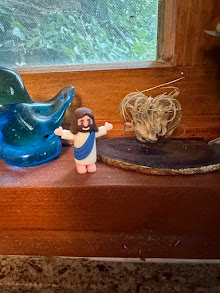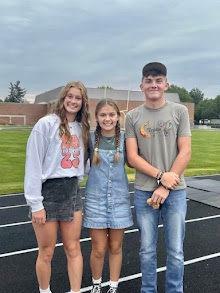"All I'm trying to do is raise food."
"Getting up in the morning and going to find the worst wreck is my job."
"The Klamath Straits drain settlement should have taken two years, not eighteen."
"They are terrified the Delta smelt will go extinct on their watch..."
"Getting up in the morning and going to find the worst wreck is my job."
"The Klamath Straits drain settlement should have taken two years, not eighteen."
"They are terrified the Delta smelt will go extinct on their watch..."
"Like storm fronts and droughts, bad stuff hits the west coast first and heads toward Missouri sometime later. We’re now learning some of the lessons that you’ve known for years. In fact, I seriously considered calling my talk this afternoon: “Boy, it must suck to be you!” "
It is a complicated and dysfunctional world. Take that little fish, the Delta smelt. While being named an endangered species for more than a quarter of a century, its population has gone from bad to worse. There is no reason to hope that those responsible for its well being understand how to help the fisheries recover. While the pumps that supply water to agricultural users can be shut down if one single smelt is detected, the agencies counting the fish have killed 120 in order to "count" them as "data". The farmers can only watch as water allocations gyrate wildly from 90 percent reliability to 40 percent. Allocation this year will be zero. Again. Farmers who "watch as water goes by to the ocean" and 200,000 acres of farmland goes fallow are justified in questioning both the science and the process. "What....", asks a water district manager, "What if the extent of the 'best available science' are statements that begin 'we think....we feel'? We need a revolution in how the agencies (like the EPA and Fish and Wildlife) function. They are overwhelmed. They need a new way to implement the act; they are locked into a conservative...and destructive mode with a 26 year record of failure."
To farm and ranch in the West is walk a log bridge with saws going at both ends. It is to work in some of the most isolated and inhospitable landscapes or to be in the bullseye under a microscope waiting for your life to explode if a cruise missile of a court decision drops in from nowhere. All farmers and ranchers share their days with the birds of the air, the critters above and below ground, seen and unseen. Most of us needn't worry ourselves with an accurate enumeration of the voles, field mice, red tailed hawks, killdeer, ground squirrels, snakes, toads, bunnies: fauna of the fields and forests, fair and foul. But to farm around a signature species like the sage grouse is to engage in a delicate game. The folks of the Family Farm Alliance are quick to emphasize the partnership and collaboration between state and local officials and folks on the land. "State wildlife officials are the local country doctors of species conservation. " Compare this assessment with the case of the sage grouse in which the "people listing the grouse had never seen one". On a ranch where sheep graze over a 150 mile spread, one enumerator counted 12 grouse, while the rancher counted more than 180 and filmed them to boot. His maxim: "Where there's a herd, there's a bird."
 |
| sheep and grouse pasturing together in Colorado |
It's March in Missouri, the month when skeins of geese trace across the wind blown clouds, when the wild turkeys gather in the far corners of last year's soybean fields and bees venture from their hives on the warmest of afternoons. A foolishly premature butterfly crossed my path the other day and the rural routes tell (and smell!) of the skunks that left their burrows before they were truly awake. If one lives and works in the open country, these are the sights and sounds that enrich: the bounty of the flocks a reflection of the richness of the land. It's March, a month of wild gyrations of temperature and wind, a schizoid wobbling between winter and spring. We expect it; we deal with it; we grumble about it; we stumble through it into April when the normalcy of the calendar will reassert itself and planting of field and garden commence.
My neighbors will go to the fields without a ruling from Fish and Wildlife; we need not wait on a court's interpretation of a Biological Opinion. There may be too much moisture...or there may be too little, but the shortfall will be an act of God, not of man. Our neighbors in the West will continue to do the heavy lifting where the struggle between scarce water, wildlife and farmers is joined. They will deal every day with the "worst wreck", seek collaborative solutions and encourage voluntary species conservation in order to "connect the dots and work for solutions" and to "perpetuate the greatest story of America."
 |
| usually planted to wheat, tomatoes, or melons |
 |
| Almond trees in bloom |




















No comments:
Post a Comment